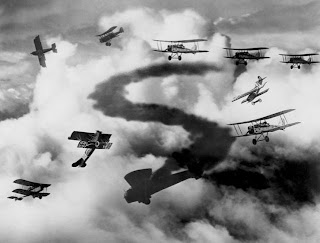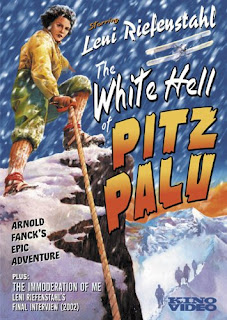
Director: Fritz Lang
Cast: Peter Lorre, Otto Wernicke, Gustaf Grundgens, Ellen Widmann, Inge Landgut, Rudulf Blumner
Background: This was Fritz Lang's first sound film, and like most of his earlier films, he co-wrote the screenplay with his wife Thea von Harbou. This was the first major role for theater actor Peter Lorre.
Story: Hans Beckert (Lorre) is a serial killer who murders young girls. The police have been unable to catch him, but the criminal underworld sets out to get the job done themselves.
Thoughts: Every modern filmmaker and moviegoer should be required to watch Fritz Lang's M. Maybe then we'd be spared the ADD crap of modern blockbusters. M shows how brilliant a film can be when it has the patience let the suspense slowly build throughout the story. The most notable sequence is a long, mostly silent passage where a blind man notices the killer's presence and the underworld network tracks him to a building, where he hides in the attic as they get closer and closer to finding him. But the film isn't just visually brilliant, it explores the story through multiple levels, with a fascinating sequence at the end showing how the criminal underworld ironically views defense attorneys in a much different light when the tables are turned. Peter Lorre's performance is far removed from the standard one note villain. He doesn't play Hans Beckert as a purely evil psycopath, but as someone who feels he does not have control of his own actions. M is a film that plays against your expectations, where the criminals are self-righteous and child murderers are human beings. It's a thoughtful and frightening movie, coming from a director who by this point was a complete master at his craft.
Postscript: Fritz Lang regarded this film as his finest work. He went on to direct for three more decades. Lorre would be typecast for a bit as villains, but still had a successful film career, including supporting roles in classics such as Casablanca and The Maltese Falcon.






















